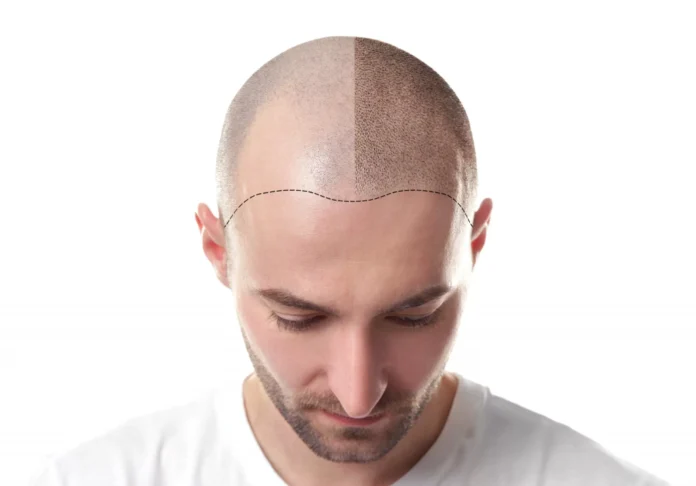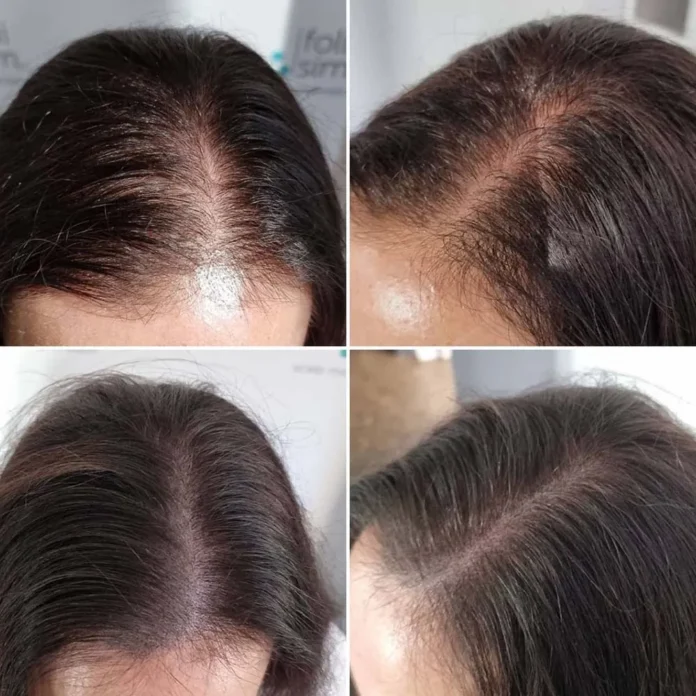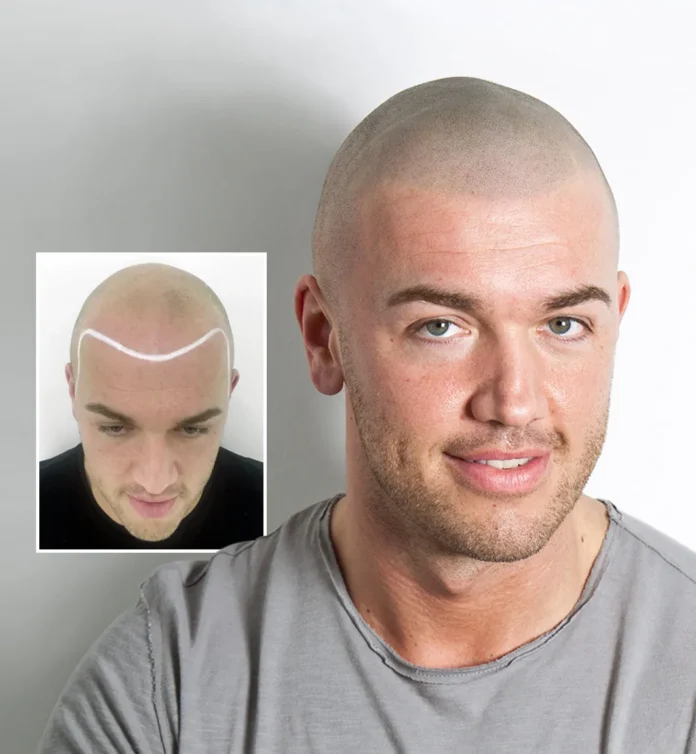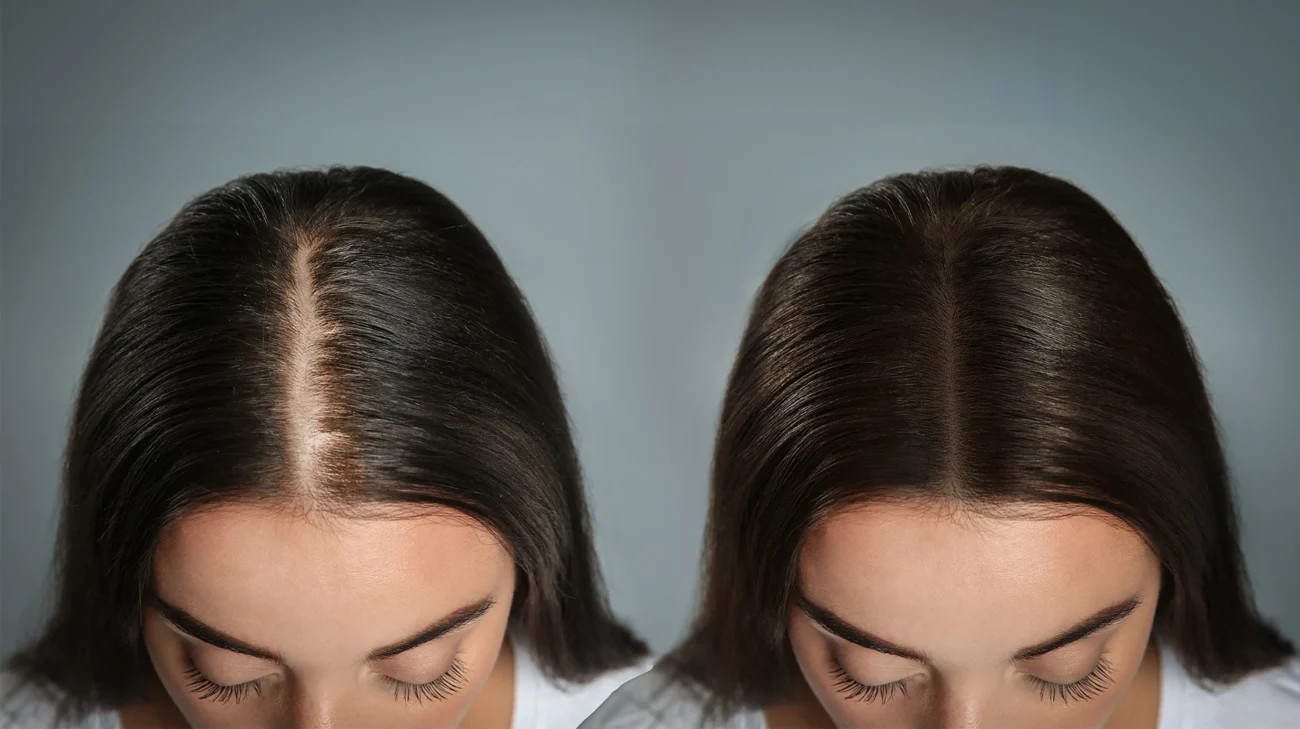Hair loss is a common problem affecting millions of people worldwide, and it can significantly impact one’s self-esteem and quality of life. Fortunately, several hair restoration options, such as micropigmentation for hair and hair transplants, are available. In this blog, we will compare these two procedures and explain why scalp micropigmentation is a better choice for those looking for a permanent solution to their hair loss.
What is Scalp Micropigmentation?
Micropigmentation for hair, or SMP, is a non-surgical cosmetic procedure involving specialised needles tattooing tiny dots on the scalp to simulate the appearance of hair follicles. The procedure commonly treats baldness, thinning hair, and alopecia in both men and women. SMP is a safe and effective alternative to hair transplant surgery and other hair restoration techniques. It can be customised to create a natural-looking hairline and the illusion of thicker hair density.

What is a Hair Transplant?
A hair transplant is a surgical procedure that involves removing hair follicles from one part of the scalp and transplanting them to another area where hair is thinning or balding. There are two types of hair transplant procedures: follicular unit transplantation (FUT) and follicular unit extraction (FUE).
FUT involves removing a strip of skin from the donor area, and then individual follicles are extracted and transplanted to the recipient area. FUE involves extracting individual follicles directly from the donor area and transplanting them to the recipient area. Both procedures require a recovery period of several days to a week, during which the patient may experience pain, swelling, and scabbing.
Detailed Comparison of SMP vs Hair Transplant
Procedure Type
Micropigmentation for hair offers a non-invasive technique for hair restoration, entailing the infusion of minute pigment dots onto the scalp, mimicking the appearance of hair follicles. It shares similarities with tattooing yet employs a distinct ink that preserves its vibrancy for an extended period.
In contrast, hair transplantation is a surgical process that involves removing hair follicles from a healthy scalp area and grafting them onto an area experiencing hair thinning or baldness.
Downtime & Recovery Time
The hair transplant surgery may result in several days to a week of downtime due to discomfort, swelling, and scabbing. On the contrary, scalp micropigmentation offers a speedy solution with no recovery period. The procedure can be completed over a few sessions, depending on the patient’s hair loss extent and desired outcome. Also, the results are instantaneous.
With scalp micropigmentation, there is no need to take time off work or alter your daily routine. This treatment is ideal for busy individuals who want to enhance their appearance without compromising their lifestyle.

Results
Scalp micropigmentation works like magic, delivering instant gratification to patients who notice a noticeable change right after the procedure. Moreover, the pigment used in the micropigmentation of hair is long-lasting and provides a permanent fix for hair loss.
Contrarily, hair transplant surgery requires patience as it takes several months for transplanted hair to grow and merge seamlessly with the existing hair. And even then, the results may not be as reliable or uniform as the SMP technique.
Consistency of Results
Scalp micropigmentation ensures uniform outcomes, irrespective of the degree of hair loss or the hair texture of the recipient. Planting tiny pigment dots onto the scalp mimics the appearance of hair follicles, delivering a flawless, realistic effect that harmonises with the natural hair.
Conversely, hair transplant surgery may fluctuate based on individual determinants, such as the patient’s hair type, level of balding, and the surgeon’s proficiency. Therefore, the results obtained through this method might not be as reliable or uniform as those achieved through SMP.
Cost
Hair transplant surgery costs can vary widely depending on the extent of hair loss and the number of grafts required. On average, hair transplant surgery can cost several thousand to tens of thousands of dollars.
On the other hand, SMP is a non-surgical hair restoration technique that uses micro-needles to deposit pigment into the scalp to create the appearance of hair follicles. SMP is generally much more budget-friendly than hair transplant surgery, which can cost several thousand to tens of thousands of dollars depending on the extent of the hair loss and the number of grafts required. By contrast, the cost of SMP is typically much lower, making it an appealing option for individuals on a tighter budget.

Maintenance
One of the greatest benefits of scalp micropigmentation is its long-lasting nature. Unlike other hair restoration procedures, such as hair transplant surgery, SMP requires no maintenance or follow-up procedures. The pigment used in SMP is specially formulated to resist fading, ensuring the results last for years.
Hair transplant surgery, on the other hand, may require touch-ups or follow-up procedures to maintain the results. While the transplanted hair may initially grow thick and fast, it may not continue to do so over time. It can result in the need for additional procedures to achieve the desired look.
Tabular Representation of SMP vs. Hair Transplant
| Feature | Scalp Micropigmentation | Hair Transplant |
|---|---|---|
| Procedure type | Non-surgical | Surgical |
| Downtime/recovery | None required | Several days to a week |
| Results | Immediate | Several months for hair to grow |
| Consistency of results | Consistent | Can vary depending on individual factors |
| Cost | Less expensive | More expensive |
| Maintenance | None required | Touch-ups and follow-up procedures may be needed |
In a Nutshell
Micropigmentation for hair is an excellent procedure to create an illusion of fuller hair. It’s also a better option since it’s non-invasive, has zero downtime, and shows instant results, yet doesn’t poke a hole in the pockets.

